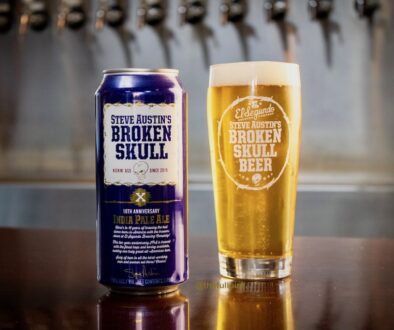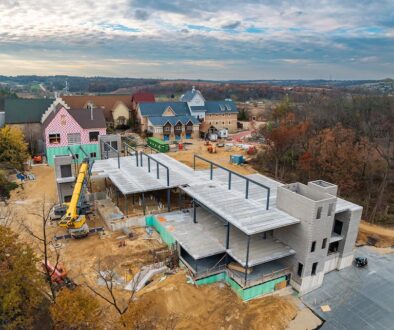Response to Proposed Increase to Federal Excise Tax on Beer
 In recent news there has been great debate over how to reduce the federal deficit. The Center for Science in the Public Interest (“CSPI”) has proposed to fund a portion of the deficit through the increase of federal excise tax on beer, wine and distilled spirits. According to the CSPI, the increased rates would adjust for inflation and equalize the rates applicable to beer, wine and distilled spirits based on the percentage of alcohol. The tax rate on a proof gallon of a distilled spirit would increase from $13.50 to $19.00 and also become the new rate for beer and wine. What would an increase mean to the beer industry, particularly the beer consumer?
In recent news there has been great debate over how to reduce the federal deficit. The Center for Science in the Public Interest (“CSPI”) has proposed to fund a portion of the deficit through the increase of federal excise tax on beer, wine and distilled spirits. According to the CSPI, the increased rates would adjust for inflation and equalize the rates applicable to beer, wine and distilled spirits based on the percentage of alcohol. The tax rate on a proof gallon of a distilled spirit would increase from $13.50 to $19.00 and also become the new rate for beer and wine. What would an increase mean to the beer industry, particularly the beer consumer?
Taxes on beer are already high. According to recent data published by The Beer Institute, taxes are the most expensive ingredient in beer, accounting for 45% of the consumer cost of beer. Which makes sense as beer is taxed in a variety of ways – income, excise and sales taxes are applied at federal, state and local levels.
The proposal would octuple (“become eight times as large as”) the federal excise tax rate for over 90% of America’s small brewers. Currently, the standard rate of tax is $18 per barrel (defined as 31 gallons). A brewer can qualify for a reduced rate of $7 per barrel on the first 60,000 barrels if they produce less than 2 million barrels. The proposal increases the rate to approximately $58.90 per barrel (assuming the proposed tax rate of $19.00 adjusted for 5% ABV, similar to how excise tax is currently applied based on a distilled spirits proof). The proposal also hurts the larger brewers producing more than 2 million barrels by doubling the existing federal excise tax rate.
The Brewers Association has issued a statement formally opposing the proposal, stating that the increase would “…devastate – if not destroy – the small, independent Main Street American breweries that have developed all across our nation during the last 35 years and which have created thousands and thousands of jobs for American workers”. Approximately 1.8 million Americans are directly and indirectly employed by the beer industry, resulting over $44 billion in federal, state and local tax revenues.
Further, “equalization” ignores how people consume liquor. In fact, courtesy of the Beer Institute, ninety percent of all beer sold in the U.S. has an ABV of 4.6 percent (I am in the 10% minority). The use of “equalization” is dangerous to the beer industry – in recent legislation there has been an increasing trend to “equalize” the treatment of beer, wine and distilled spirits – specifically in how they are sold, taxed, and served.
While thankfully the proposal didn’t make it into the recently enacted fiscal cliff legislation (H.R. 8), the increase of federal excise taxes continues to be a topic of debate and is expected to appear in coming proposed legislation. Other countries are also starting to see legislation raising the taxes applicable to beer – French parliament recently approved a bill to raise the standard excise duty rate on beer sold by 160%, which analysts expect will boost the cost of a pint by 20-25%.
An interesting topic to ponder over a pint of beer. I personally recommend supporting your local brewer, such as Death & Taxes from Moonlight Brewing. Death & Taxes is a light-bodied dark lager of 5% ABV offering hints of chocolate and roasted malt – available at the Toronado in San Francisco.




January 15, 2013 @ 8:57 am
Great read. I shared this with my colleagues this morning and they too enjoyed. Keep up the good work.
January 15, 2013 @ 7:44 am
I think you meant $16, not 16%. Corporate income tax is not a tax on beer, it’s a tax on income. Because the business sells beer doesn’t mean that it’s a tax on beer. By extension, that would mean that all goods are taxed through the income tax, and that is an oversimplification of the tax code. I agree with you on excise and sales taxes, but income is a big stretch. We are in agreement, however, on your overall message: this proposal would be bad news for the brewing industry, particularly micro and nano breweries.
January 14, 2013 @ 10:56 pm
Good catch on the tax rate, Joe – 16% is the correct percentage.
As a corporate tax accountant, I can assure you federal income taxes are imposed on brewer’s income. For example, Sam Adams, a publicly traded brewery, recorded an effective income tax rate of approximately 36% for 2011 (I am still awaiting the 2012 financial results). Applicable state and local income taxes vary depending upon jurisdiction. Also, a shareholder may be subject to a secondary level of income tax (aka double taxation) on investment income (such as dividends or gains on sale of stock).
January 14, 2013 @ 9:11 pm
There appears to be a slight error in the hypothetical per-barrel tax rate on 5% ABV beer. According to the cited proposal, the rate would be $16 per proof gallon – not the $19 the author uses (it’s a 19 percent increase, which could be the source of the confusion). That would make the 31-gallon barrel tax rate $49.60, not $58.90. Still, over seven times the current rate (for the first 60,000 barrels for brewers brewing under 2 million barrels). Also, beer is not taxed via the income tax.
January 14, 2013 @ 4:59 pm
Good grief. More BS ways to tax everyone for everything. How about they cut the damn spending? What’s next? Taxing homebrew once made?